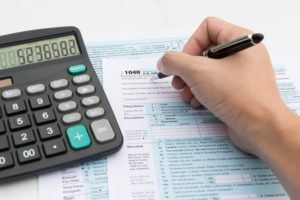FINANCIAL DOCUMENTS AND DIVORCE

Documents help provide us with a map of our lives and our marriage. Documents
ranging from birth certificates to artwork to car titles all provide a
timeline and a history. When getting a divorce,
into a couple’s income and property.
Bank statements are indispensable to the divorce process. Bank statements
not only reveal as to the balances of various savings and checking accounts
and the names of the account holders, but also the frequency and amount
of deposits. This can be important if you’re having trouble getting
actual paystubs from your spouse. If you can see how much is being direct
deposited from your spouse’s employer, that can at least give you
some starting to point to knowing your spouse’s regular recurring
income. Bank statements also reveal important dates regarding deposits
and balances. If your spouse is claiming that part or all of a bank account
is separate property and you shouldn’t be awarded any of it, then
having documents to prove that the account was opened after the date of
the marriage can support your claim. Bank statements are often available
online for a certain amount of time. It’s also possible to obtain
older statements directly from your bank, often for a fee.
Tax returns and pay stubs will also be needed. Pay stubs are very useful
when a person’s regular recurring income is always the same. Tax
returns provide extra information not only about a person’s average
income over the course of the year, but also if your spouse receives commissions
or bonuses that may not be apparent from the paystubs. This income will
generally be reflected on the tax returns and the accompanying W-2 forms.
This lets the court have a good overall understanding of the true incomes
of both you and your spouse.
Credit card statements or other loan documents are also crucial. Along
with assets such as bank accounts, a trial judge must divide up marital
debt. Credit card statements will reveal the nature of the debt and itemize
each purchase so that you can see how the money was spent. If your spouse
is running up debt or using a card having an affair, for example, having
the statements can help your attorney argue that you shouldn’t be
responsible for parts of that debt.
Deeds or documents related to real estate can also be necessary. Where
there’s no dispute that a home was purchased during the marriage,
the deed is probably not as essential. However, if one spouse is claiming
the house is separate property, the deed along with the closing documents
will reveal when the real estate was purchased, by whom, and occasionally
where the funds came from to buy it.
Divorce is complicated, and it can be difficult to know which information
is important to gather. We can answer your questions and help you get
organized to get your divorce started. Call us at (732) 479-4711 for
an appointment.
